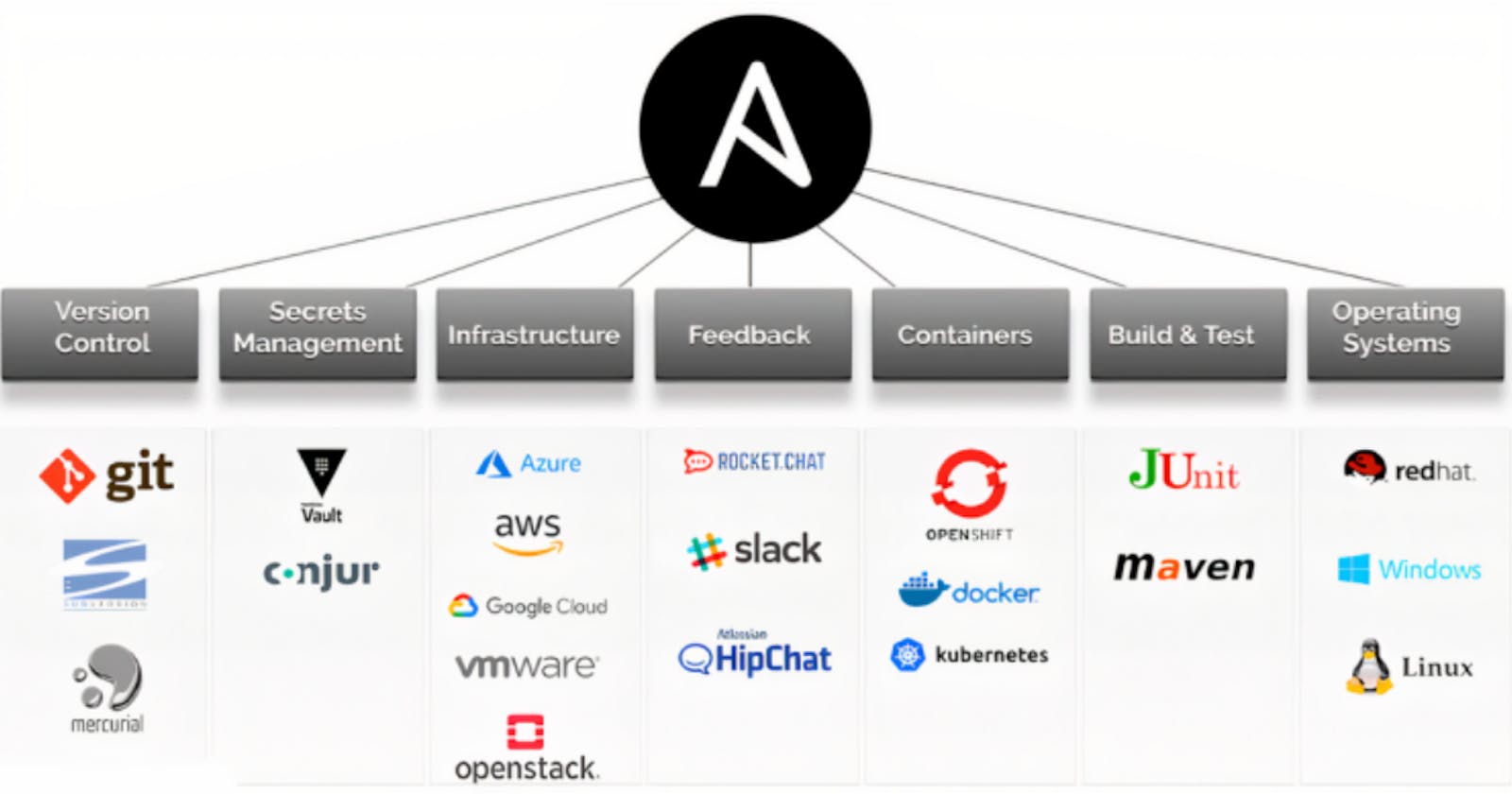Automation Empowered: How Ansible Is Transforming Industries and Overcoming Challenges
Introduction to Ansible:
Ansible is an IT automation engine that can automate various IT needs. And it has features like application deployment that means you can deploy your application easily as per your requirements, cloud provisioning, configuration management is also the main feature where you can configure and describe your automation job, and intra-service orchestration. In this, (Yet Another Markup Language)YAML is used for configuring that helps for describing automation jobs as per requirement. It is Designed for multi-tier deployments, Ansible models the IT infrastructure by describing how various systems interrelate, instead of managing one system at a time.
Features:
In this, It uses no extra functionality and cost like no agents and no extra custom security infrastructure, hence it is easy to deploy.
It uses a very simple language called YAML (Yet Another Markup Language) in the form of Ansible Playbooks and you can configure it as per your requirement, and it helps describe the automation jobs in a way that looks like basic English.
The Ansible Automation Engine has a direct interaction with the users who write playbooks and also interacts with cloud services and the Configuration Management Database (CMDB).
Challenges in Various Industries:
Industries today face a multitude of challenges that demand innovative solutions. In the IT sector, rapid system scaling and configuration consistency are paramount. Healthcare grapples with stringent compliance regulations and data security. Finance battles to maintain robust cybersecurity defenses. Manufacturing seeks to optimize production lines while ensuring quality control. Regardless of the sector, time, efficiency, and cost pressures are universal. Ansible, as an automation tool, provides a versatile means to address these challenges. Its ability to automate complex tasks, enforce consistency, and enhance security makes it a go-to solution for industries striving to stay competitive and resilient in a fast-paced world.
Ansible's features are specifically used in various industries to address their unique challenges:
Information Technology (IT) Sector:
Configuration Management: Ansible's playbooks allow IT teams to automate server provisioning and configuration, ensuring uniformity and reducing the risk of configuration drift.
Application Deployment: Ansible simplifies the deployment of software and updates across IT infrastructure, improving speed and reliability.
Task Automation: Routine tasks such as log rotation, system patching, and user management can be automated using Ansible, freeing IT professionals for more strategic work.
Healthcare Industry:
Security and Compliance: Ansible's role-based access control (RBAC) and audit logging help healthcare organizations maintain compliance with stringent regulations like HIPAA. Automation ensures consistent security measures.
Configuration Management: Ansible aids in managing diverse healthcare systems, from electronic health record (EHR) systems to medical devices, by standardizing configurations and ensuring data integrity.
Disaster Recovery: Automating backup and recovery processes with Ansible is crucial to safeguard patient data and ensure business continuity.
Financial Sector:
Cybersecurity: Ansible's automation capabilities bolster cybersecurity by enabling swift response to security incidents, patch management, and ensuring that security policies are uniformly enforced.
Compliance: Automation ensures that financial institutions adhere to industry regulations like PCI DSS (Payment Card Industry Data Security Standard) and maintain audit trails for compliance purposes.
Performance Optimization: Ansible helps manage complex financial systems, optimizing their performance while minimizing downtime and errors.
Manufacturing Industry:
Production Line Optimization: Ansible can automate tasks such as production scheduling and inventory management, helping manufacturers streamline operations.
Quality Control: Automated testing and inspection processes ensure consistent product quality, with Ansible orchestrating these quality control checks.
Scalability: Ansible's scalability features help manufacturers manage a growing number of devices and machines on the factory floor while maintaining consistent configurations.
Conclusion:
In simple terms, Ansible is like a super tool that helps different industries with their tricky problems. In IT, it makes sure all the computer stuff works smoothly; in healthcare, it keeps important data safe and helps with doctor's tools; in finance, it guards against computer bad guys; and in factories, it makes sure everything is built just right. Ansible does all this by doing lots of tasks by itself, like a helpful robot, so the people working in these industries can focus on more important things. So, Ansible isn't just a tool; it's a secret weapon for industries to do better in our tech-filled world.
Thank you for taking the time to read this! If you have any questions or comments concerning this article, please contact me via any of the following channels:
